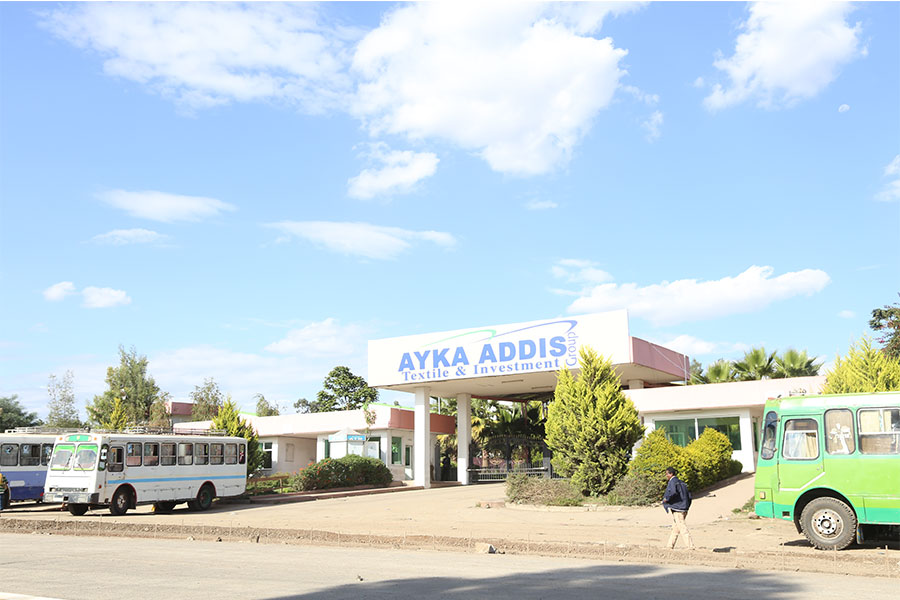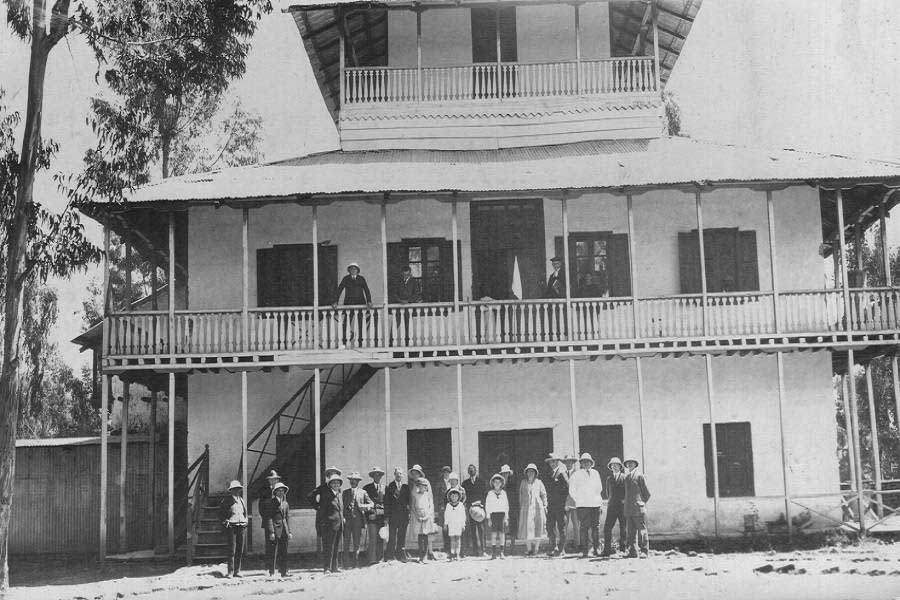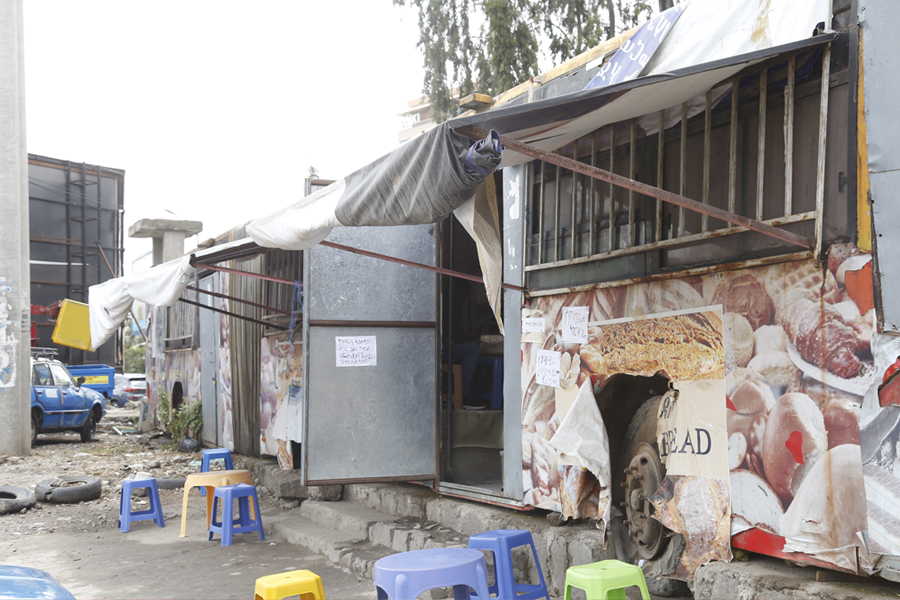
Radar | Feb 02,2019
Mar 30 , 2019
By Haben Mehari
If Addis Abeba’s riverside project can materialise, it can transform the city in a way a similar initiative made Chicago one of the United States’ leading cities, writes Haben Mehari (haben.mehari@aiesec.net), an entrepreneur and a graduate student at Addis Abeba University.
Increasing human population, uncontrolled urbanisation and inadequate sanitation infrastructure have caused a degradation of Addis Abeba’s rivers. When we travel anywhere around the capital where there is a river nearby, the smell is unbearable. Looking down at them from a bridge or a bank, we can see that our rivers are biologically dead.
The Addis Abeba City River Side City Park Project, with an expected project life of three years, aims to change this and bring our rivers back to life. There is a justifiable scepticism over whether or not the project will be realised, given the poor record of project implementation and the lavish concept designs we have been shown. But none of these factors - which can be avoided with strict follow up - are enough to discredit the importance of rehabilitating Addis’ rivers.
Most European and American cities in the industrial revolution saw increased populations as people were moving from the countrysides into the cities for jobs in factories. It was a time of booming manufacturing but the cities’ environments paid a price. Waste from factories, dumped into water bodies nearby, made rivers unbearable to be near. A prime example of this tendency was Chicago.
The Chicago River ran through the heart of the city and was once full of sewage. It led to the building of a series of canals in the late 19th century to actually reverse the flow of waste away from Lake Michigan to prevent it from contaminating the city’s water supply.
This changed in the 1980s when Chicago’s heavy industry was in retreat and the city was in decline. The mayor of Chicago beginning in the late 1980s was then Richard M. Daley, who went on to bring about an end to Chicago’s decline by beautifying the city.
“If Chicago hoped to become a world-class city, it had to look like one,” he used to say.
More than a century after the city became an industrial hub, the Chicago River Corridor Development Plan, which constructed new trails, parks, overlooks and riverwalks along the Chicago River, was launched. This waterway, far too long dismissed as a dirty and stinky ditch, is now home to a vast array of wildlife, including beavers, turtles and more than 70 species of fish.
On and along the river, people are now fishing, walking, biking, living and working just as their mayor had envisioned back in the 1980s. The Chicago River system has become the anchor of a booming waterfront economy. The Riverwalk is home to many dining options, hosts special events throughout the year, and several river tours and cruises are available.
Gone are the days when the river was stinky and an unsightly place. Nowadays, the most expensive areas to live in Chicago are near the river. The country’s second largest building, Willis Tower, is located near the river, 41pc of the city’s workforce lives within one mile of the Riverwalk and the lowest retail market vacancy rate is near the river. Based on estimates, there are about 1.5 million users of the Riverwalk every day.
Chicago’s Riverwalk shows that public spaces can even pay for themselves. By spurring commercial development opportunity, the Chicago Riverwalk is a great example of how successfully improving rivers captures future value.
Chicago and Addis Abeba have similarities. They have relatively comparable areas, populations and rivers flowing through their centres. Addis Abeba is also a quickly urbanising city with a booming service sector. But while Chicago is now one of the most beautiful cities in the world, Ethiopia’s political, economic and cultural centre is lagging far behind. Fortunately, it is not too late, and with this project, it is possible to transform Addis Ababa into the world-class city it never was.
PUBLISHED ON
Mar 30,2019 [ VOL
19 , NO
987]


Radar | Feb 02,2019

Verbatim | Feb 27,2021

Radar | Jun 27,2020

Fortune News | Dec 27,2018

Agenda | Jun 21,2025

Fortune News | Feb 20,2019

Agenda | Jun 29,2025

View From Arada | Apr 16,2022

Radar | May 25,2019

Fortune News | Jul 22,2023

Photo Gallery | 175066 Views | May 06,2019

Photo Gallery | 165294 Views | Apr 26,2019

Photo Gallery | 155578 Views | Oct 06,2021

My Opinion | 136771 Views | Aug 14,2021

Dec 22 , 2024 . By TIZITA SHEWAFERAW
Charged with transforming colossal state-owned enterprises into modern and competitiv...

Aug 18 , 2024 . By AKSAH ITALO
Although predictable Yonas Zerihun's job in the ride-hailing service is not immune to...

Jul 28 , 2024 . By TIZITA SHEWAFERAW
Unhabitual, perhaps too many, Samuel Gebreyohannes, 38, used to occasionally enjoy a couple of beers at breakfast. However, he recently swit...

Jul 13 , 2024 . By AKSAH ITALO
Investors who rely on tractors, trucks, and field vehicles for commuting, transporting commodities, and f...

Oct 18 , 2025
The political establishment, notably the ruling party and its top brass, has become p...

Oct 11 , 2025
Ladislas Farago, a roving Associated Press (AP) correspondent, arrived in Ethiopia in...

Oct 4 , 2025
Eyob Tekalegn (PhD) had been in the Governor's chair for only weeks when, on Septembe...

Sep 27 , 2025
Four years into an experiment with “shock therapy” in education, the national moo...

Oct 18 , 2025 . By NAHOM AYELE
In a sweeping reform that upends nearly a decade of uniform health insurance contribu...

Oct 18 , 2025 . By BEZAWIT HULUAGER
A bill that could transform the nutritional state sits in a limbo, even as the countr...

Oct 18 , 2025 . By SURAFEL MULUGETA
A long-planned directive to curb carbon emissions from fossil-fuel-powered vehicles h...

Oct 18 , 2025 . By BEZAWIT HULUAGER
Transaction advisors working with companies that hold over a quarter of a billion Bir...